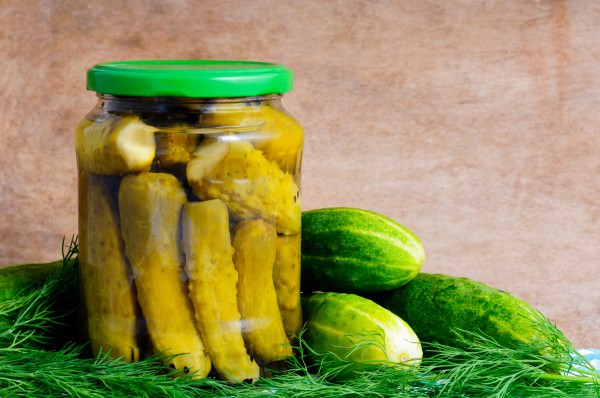 Each housewife has her own, proven recipe for pickled vegetables. But along with culinary secrets, you must be able to choose the right variety of cucumbers for canning and pickling.Only then will you get crispy fragrant greens.
Each housewife has her own, proven recipe for pickled vegetables. But along with culinary secrets, you must be able to choose the right variety of cucumbers for canning and pickling.Only then will you get crispy fragrant greens.
Content
How to choose a variety
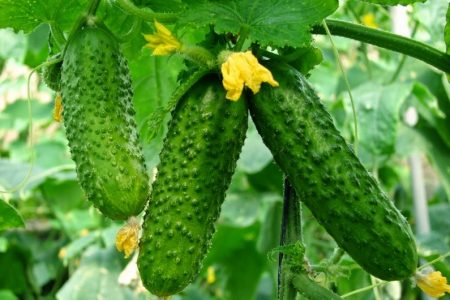 Long, smooth-skinned cucumbers are good for salads, but not suitable for pickles. Salad varieties are consumed fresh in the summer. During heat treatment, the skin softens, the taste worsens.
Long, smooth-skinned cucumbers are good for salads, but not suitable for pickles. Salad varieties are consumed fresh in the summer. During heat treatment, the skin softens, the taste worsens.
In pickling cucumbers, a large number of tubercles and spikes are located on the skin. When cut, the pulp is dense, with a small number of seeds. They are delicious when harvesting from the beds, ideal for pickling and various tasty preserves.
The third group includes station wagonssuitable for salads and for workpieces. They combine the characteristics of the first two groups: the surface is slightly ribbed, with white spikes, in length - slightly inferior to salad greens.
In addition to belonging to groups, a variety is selected, given:
- ripening dates of the vegetable;
- taste qualities;
- productivity;
- growing conditions (open ridges or shelters).
Varieties bred back in the 20th century, successfully grown in different regions of the country, and new hybrids are on sale. Assortment is great, but it is recommended to pay attention to zoned species adapted to a specific area.
Suitable for preservation:
- gherkin varieties;
- cucumbers giving bunch ovaries.
Seeds are taken from varieties that have attracted attention during the cultivation. When growing hybrids, you will have to purchase seed every year.
Characteristics of pickles
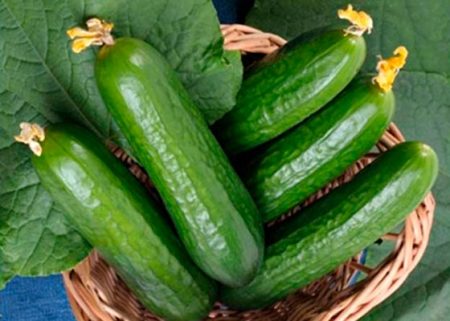 Choosing the right variety or hybrid does not always guarantee success. It is necessary that Zelentsy meet certain requirements:
Choosing the right variety or hybrid does not always guarantee success. It is necessary that Zelentsy meet certain requirements:
- length - no more than 12-13 cm;
- on the skin - tubercles (pimples) with spikes;
- taste - a little sweet, without a hint of bitterness;
- pulp - elastic, crisp;
- lack of voids.
Zelentsy for pickles and the preservation inside has a special structure, the vessels go laterally, so the flesh crunches. Salad varieties do not have such a feature; when pouring with hot brine or marinade, the flesh becomes soft.
The early ones will produce crops in the first half of summer, but for winter supplies you will have to plant cucumbers later or use mid-ripening and late hybrids. In regions with a short summer at the end of August, cooling is not uncommon, therefore it is recommended to cultivate vegetables in greenhouses. Zelentsy in a shelter will ripen just in time, to the beginning of salting and conservation for the winter.
The best pickling varieties
The list starts with proven cucumbers, a “classic” of pickles. They are grown throughout the country, successfully competing with new groups, and are not losing ground.
Many cucumbers of this group served as the basis for creating updated culture series with improved characteristics.
Nezhinsky
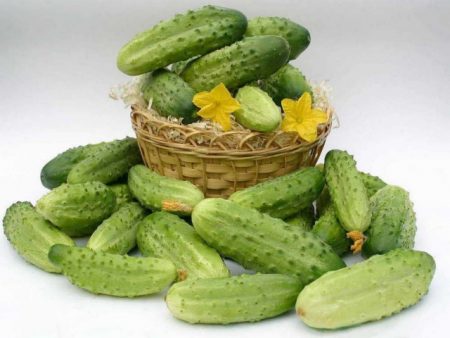 Suitable for growing on trellises, as it gives long lashes. Collection of greens - 55-70 days. Pollinated by insects. When salting - great taste, crunch. Fruits with large tubercles, dark green color. Reach approximately 10-12 cm in length. Nezhinsky are unsuitable for storage, it is required immediately after the collection to let the greenhouses for processing.
Suitable for growing on trellises, as it gives long lashes. Collection of greens - 55-70 days. Pollinated by insects. When salting - great taste, crunch. Fruits with large tubercles, dark green color. Reach approximately 10-12 cm in length. Nezhinsky are unsuitable for storage, it is required immediately after the collection to let the greenhouses for processing.
Muromsky
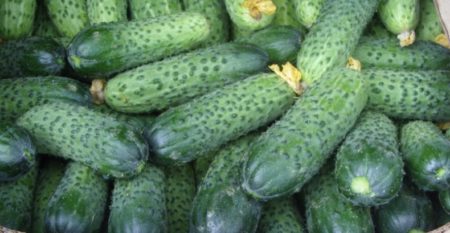 Familiar to gardeners with experience, a slightly forgotten variety. It forms powerful bushes with a large number of leaves. The lashes are short, on ridges they are cultivated in a spread. It withstands cold snap, is not afraid of drought. Murom - shorty cucumbers, up to 8 cm, pot-bellied, elastic. The skin is light green with characteristic whitish stripes. Fragrant crispy fruits are suitable for salting (jars, barrels). "Minus" - quickly overripe and lose their taste.
Familiar to gardeners with experience, a slightly forgotten variety. It forms powerful bushes with a large number of leaves. The lashes are short, on ridges they are cultivated in a spread. It withstands cold snap, is not afraid of drought. Murom - shorty cucumbers, up to 8 cm, pot-bellied, elastic. The skin is light green with characteristic whitish stripes. Fragrant crispy fruits are suitable for salting (jars, barrels). "Minus" - quickly overripe and lose their taste.
Far Eastern
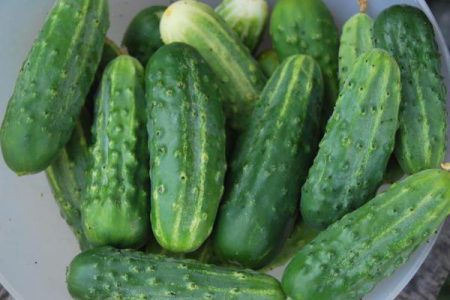 Forms elongated fruits with a juicy, dense texture of pulp. It is distinguished by a long fruiting period, strong growth of lashes. Grown in Siberia, the Far East, the Urals, showing high yields.
Forms elongated fruits with a juicy, dense texture of pulp. It is distinguished by a long fruiting period, strong growth of lashes. Grown in Siberia, the Far East, the Urals, showing high yields.
Parisian Gherkin
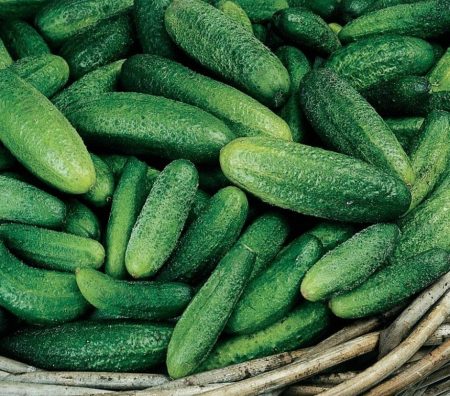 The main advantages of a cucumber beloved by summer residents:
The main advantages of a cucumber beloved by summer residents:
- sweetness;
- crisp flesh;
- unpretentiousness to growing conditions.
Resistant to adverse conditions gives stable yields.
Gherkins up to 10 cm, with dense contents under the skin. On the surface there are many tubercles with spikes, the weight of Zelentsy is 90 grams.
Vyaznikovsky
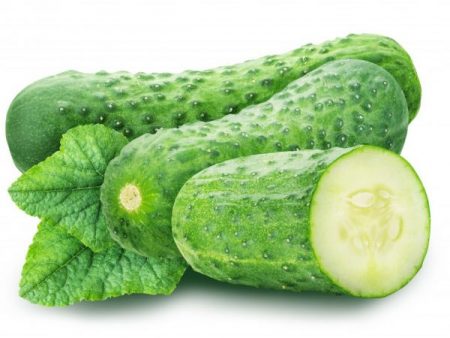 Belongs to the "old guard" varieties, cultivated everywhere. Cucumbers elongated, up to 11 cm, with a slight tubercle, fragrant. The core is dense, crisp.
Belongs to the "old guard" varieties, cultivated everywhere. Cucumbers elongated, up to 11 cm, with a slight tubercle, fragrant. The core is dense, crisp.
Great
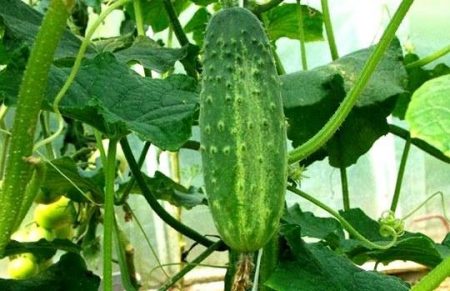 Elongated cucumbers weighing up to 120 grams, length - 10-12 cm. By timing - medium early, the first batch is removed on the 50th day after emergence. Tasty, suitable for pickles and pickles variety.
Elongated cucumbers weighing up to 120 grams, length - 10-12 cm. By timing - medium early, the first batch is removed on the 50th day after emergence. Tasty, suitable for pickles and pickles variety.
Shore
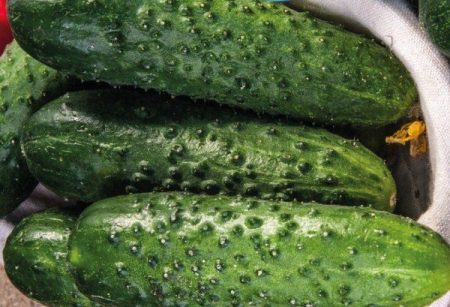 It appeared on the market in the 90s of the last century, mainly cultivated in open ridges. Sredneranny, Zelentsy removed after 50-51 days. Trihedral cucumbers with blurry whitish stripes, the surface is tuberous, no thorns. The fruits are dense, bitterness, no voids.
It appeared on the market in the 90s of the last century, mainly cultivated in open ridges. Sredneranny, Zelentsy removed after 50-51 days. Trihedral cucumbers with blurry whitish stripes, the surface is tuberous, no thorns. The fruits are dense, bitterness, no voids.
Crisp
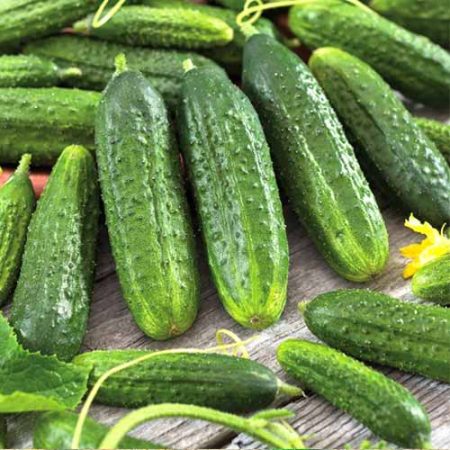 Justifies the name completely, in pickle the flesh remains dense, tasty, crunches. Designed for beds of open ground, shows good results in tunnels.
Justifies the name completely, in pickle the flesh remains dense, tasty, crunches. Designed for beds of open ground, shows good results in tunnels.
Pollinated by insects, matures in about 50 days. Crops are stable, up to 9 kg per 1 sq. Km. meter. Zelentsy is taken in the size of 8-10 cm, these are best suited for barrel salting. Peel with large tubercles, dark green saturated color. The taste of the Crispy is praised by gardeners, noting that in pickling the taste is only improving.
Popular pickles for winter harvesting
Summer residents in the list have favorites - varieties and hybrids crops characterized by good growth, friendly return of the crop, excellent taste.
Hermann
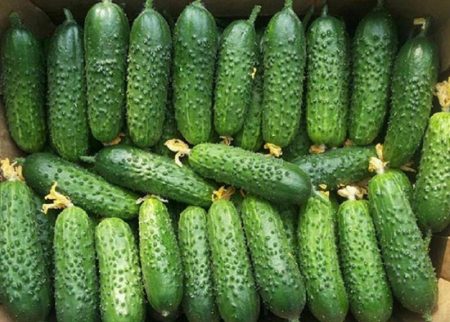 It does not need pollination, productive, unpretentious. Bred in the Netherlands, known in the market since 2001. Gherkins bright green, with small tubercles. From a square meter of beds up to 20-25 kg of greens are collected.
It does not need pollination, productive, unpretentious. Bred in the Netherlands, known in the market since 2001. Gherkins bright green, with small tubercles. From a square meter of beds up to 20-25 kg of greens are collected.
Hector F1
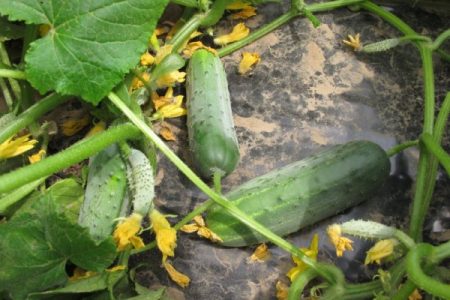 A popular early cucumber from the hybrid group. Dates - 30-35 days. The bushes are compact, bundle-type ovaries are formed in the nodes. Resistant to major diseases, a thickened landing on the garden is allowed. The size of greenbacks is small, 8-10 cm. Surface with large tubercles and white spikes. The flesh crunches; it tastes juicy, with a pronounced cucumber aroma.
A popular early cucumber from the hybrid group. Dates - 30-35 days. The bushes are compact, bundle-type ovaries are formed in the nodes. Resistant to major diseases, a thickened landing on the garden is allowed. The size of greenbacks is small, 8-10 cm. Surface with large tubercles and white spikes. The flesh crunches; it tastes juicy, with a pronounced cucumber aroma.
Courage F1
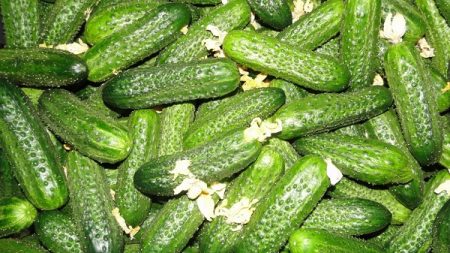 A hybrid of domestic selection, characterized by the power of the bushes, unlimited growth. Parthenocarpic. On the side lashes forms up to 6-8 greens. Fruits of saturated green color with barely visible plaque, 100-140 grams. It tastes sweetish with a pleasant aroma.
A hybrid of domestic selection, characterized by the power of the bushes, unlimited growth. Parthenocarpic. On the side lashes forms up to 6-8 greens. Fruits of saturated green color with barely visible plaque, 100-140 grams. It tastes sweetish with a pleasant aroma.
Phoenix
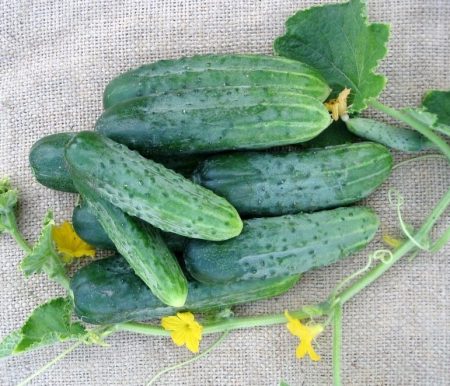 Harvest, late ripening. Recommended for open beds, pollinated by insects. Forms cylindrical greenbacks up to 12-15 cm. Bushes are powerful, with long lashes.Fruits in a long time, it is advisable to organize a systematic harvest, otherwise the cucumbers outgrow.
Harvest, late ripening. Recommended for open beds, pollinated by insects. Forms cylindrical greenbacks up to 12-15 cm. Bushes are powerful, with long lashes.Fruits in a long time, it is advisable to organize a systematic harvest, otherwise the cucumbers outgrow.
Aquarius
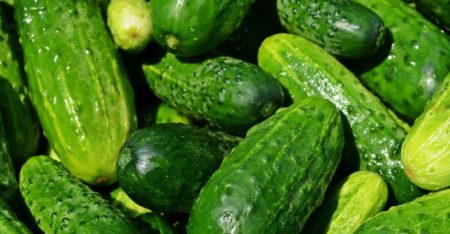 A plant with lashes of medium length, powerful pentagonal leaves. Knotted oval, with a large number of tubercles fruits. On the skin brown pubescence. Length - 12-14 cm. Color - green with whitish stripes. Zelentsy juicy, without bitterness. Harvesting begins on day 50, fruiting is long.
A plant with lashes of medium length, powerful pentagonal leaves. Knotted oval, with a large number of tubercles fruits. On the skin brown pubescence. Length - 12-14 cm. Color - green with whitish stripes. Zelentsy juicy, without bitterness. Harvesting begins on day 50, fruiting is long.
Game
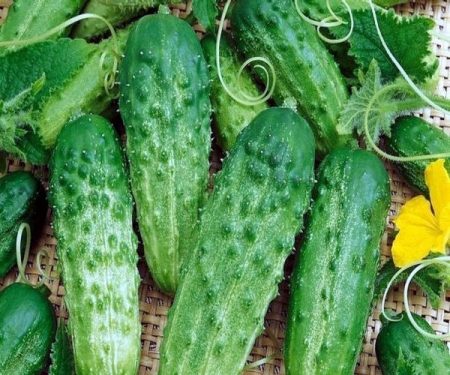 Excellent in pickles and marinades, crispy, delicious. Zelentsy elongated, not more than 11 cm, 68-72 grams. There are few thorns. Cucumbers ripen for 450-50 days. Harvesting periods are extended. Shows good shelter resulton open ridges.
Excellent in pickles and marinades, crispy, delicious. Zelentsy elongated, not more than 11 cm, 68-72 grams. There are few thorns. Cucumbers ripen for 450-50 days. Harvesting periods are extended. Shows good shelter resulton open ridges.
Moscow Nights
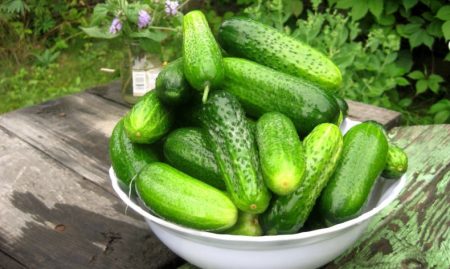 Indeterminate vigorous hybrid, resistant to infections, high productivity. Ovary forms in bundles, up to 3-4 green leaves. The flowers are mainly female type, long fruiting.
Indeterminate vigorous hybrid, resistant to infections, high productivity. Ovary forms in bundles, up to 3-4 green leaves. The flowers are mainly female type, long fruiting.
Marinda F1
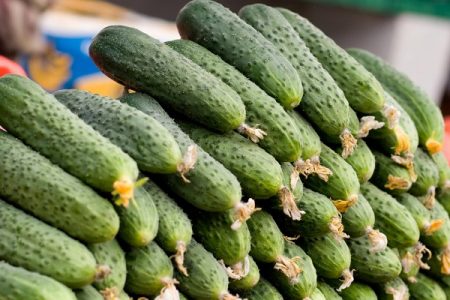 A Dutch hybrid crop yield, yielding 25-30 kg per square meter. Self-pollinating, with a steady and stable return of greens. White-spiked fruits are harvested approximately 40-45 days after emergence. Fruits for a long time. One of the best varieties of cucumbers for harvesting for the winter.
A Dutch hybrid crop yield, yielding 25-30 kg per square meter. Self-pollinating, with a steady and stable return of greens. White-spiked fruits are harvested approximately 40-45 days after emergence. Fruits for a long time. One of the best varieties of cucumbers for harvesting for the winter.
Hybrids for salting and canning
A lot of hybrid forms of culture designed specifically for conservation, salting. Harvest and disease-resistant, cucumbers hybrids are grown in various regions of the Russian Federation.
Liliput F1
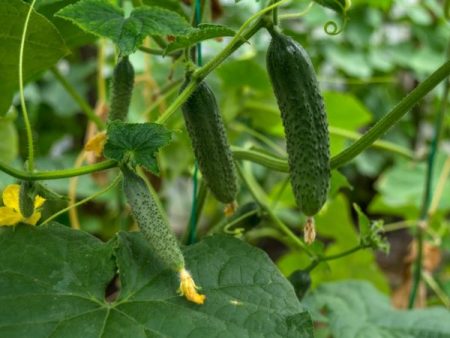 With full care of the hybrid, gherkins have been harvested since the second half of June. Zelentsy 7-9 cm, coarse, with small white spines. Ideal for salting, marinades are delicious. Unpretentious, harvested (10-12 kg per 1 sq. Meter), but does not tolerate temperature extremes.
With full care of the hybrid, gherkins have been harvested since the second half of June. Zelentsy 7-9 cm, coarse, with small white spines. Ideal for salting, marinades are delicious. Unpretentious, harvested (10-12 kg per 1 sq. Meter), but does not tolerate temperature extremes.
Zyatek F1
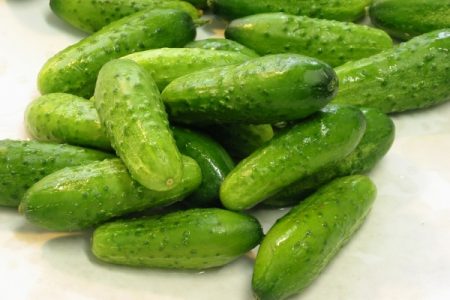 Early ripening, gives a result in greenhouses, bears fruit well in open air beds. It is famous for its excellent taste. The hybrid is convenient to grow, since it does not require pollination, bears fruit in any weather. Cucumbers 12-14 cm, with a large number of tubercles. The thorns are soft, not prickly. Remove green stuff with pickles, gherkins. Harvest after 40 days.
Early ripening, gives a result in greenhouses, bears fruit well in open air beds. It is famous for its excellent taste. The hybrid is convenient to grow, since it does not require pollination, bears fruit in any weather. Cucumbers 12-14 cm, with a large number of tubercles. The thorns are soft, not prickly. Remove green stuff with pickles, gherkins. Harvest after 40 days.
Siberian salting F1
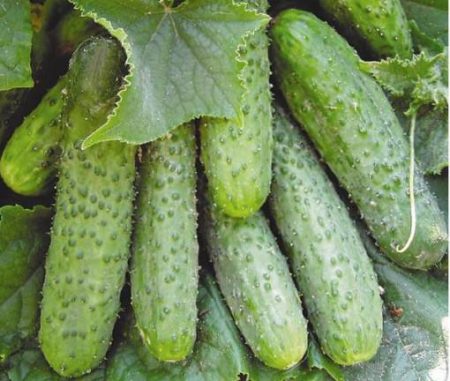 The hybrid stands out among the novelties of selection by resistance to adverse weather conditions. Bred specifically for risky farming unpretentious. Cucumbers are short, 6-8 cm, dense. The skin is light green, tubercles and spikes are small. Genetically without bitterness, the taste is excellent.
The hybrid stands out among the novelties of selection by resistance to adverse weather conditions. Bred specifically for risky farming unpretentious. Cucumbers are short, 6-8 cm, dense. The skin is light green, tubercles and spikes are small. Genetically without bitterness, the taste is excellent.
Marina Grove F1
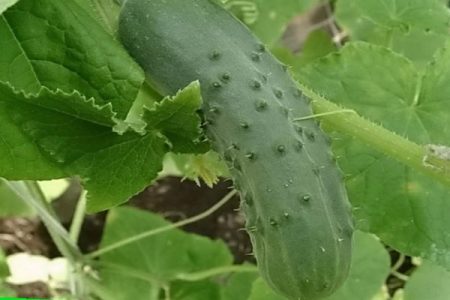 A hybrid of the beam type, begins to produce crops early. Duration of fruiting is long. At the same time, up to 10-12 gherkins-gherkins ripen on the bush. Emerald white-thorny fruits 10-12 cm long, with a dense skin and tasty juicy pulp.
A hybrid of the beam type, begins to produce crops early. Duration of fruiting is long. At the same time, up to 10-12 gherkins-gherkins ripen on the bush. Emerald white-thorny fruits 10-12 cm long, with a dense skin and tasty juicy pulp.
F1 season hit
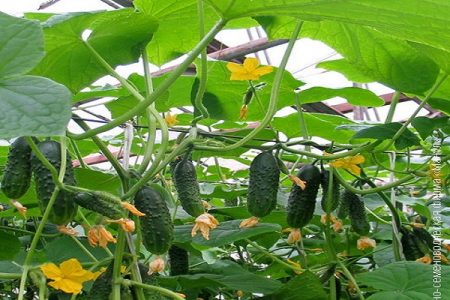 It is famous for abundant fruiting, reliability. Bred by breeders Agrofirm Manul. Gives Zelentsy until late autumn. Gherkin type, ovaries are formed in bundles of 3-6 pieces. Lateral shoots grow intensively, which allows to extend the yield of the crop. Zelentsy are white-spiked, 8-11 cm, of high palatability.
It is famous for abundant fruiting, reliability. Bred by breeders Agrofirm Manul. Gives Zelentsy until late autumn. Gherkin type, ovaries are formed in bundles of 3-6 pieces. Lateral shoots grow intensively, which allows to extend the yield of the crop. Zelentsy are white-spiked, 8-11 cm, of high palatability.
White sugar F1
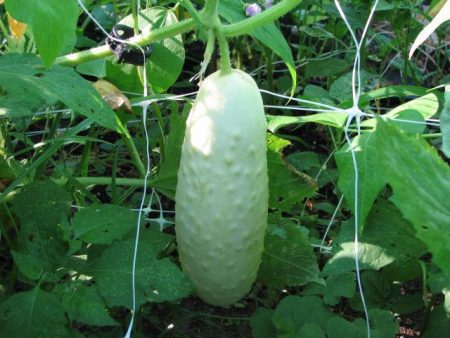 The original hybrid with milk and creamy greens. Sweet, solid cucumbers look amazing in assorted jars. The White Sugar variety was developed by Ural breeders, recommended for territories with harsh climates. Ripens in 48-50 days. Fruits 10-12 cm, with rare tubercles on the skin. Harvest, easy-care hybrid.
The original hybrid with milk and creamy greens. Sweet, solid cucumbers look amazing in assorted jars. The White Sugar variety was developed by Ural breeders, recommended for territories with harsh climates. Ripens in 48-50 days. Fruits 10-12 cm, with rare tubercles on the skin. Harvest, easy-care hybrid.
Of the hybrids, summer residents celebrate Ginga F1 cucumber, Little Raccoon F1. From the special selection line of gherkins, we select the Son of the regiment F1, Ekol F1, Temp F1, Sankina love F1.
The best universal varieties: names and characteristics
The category includes varieties and hybrid forms suitable for salads, salting and preservation.
Fontanel
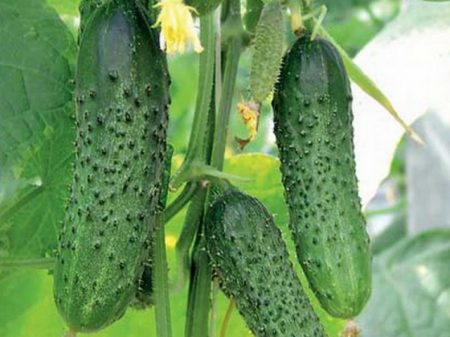 Unprincipled, giving Zelentsy in any season, a hybrid. Differs in excellent tastes, simplicity of cultivation. In shelters they collect up to 22-25 kg per 1 sq. Km. meters, on ridges - up to 10 kg. The fruits do not ripen at the same time, the length is 10-12 cm. There is no bitterness, voids, there is a fragrance.When salting, a characteristic crunch is preserved.
Unprincipled, giving Zelentsy in any season, a hybrid. Differs in excellent tastes, simplicity of cultivation. In shelters they collect up to 22-25 kg per 1 sq. Km. meters, on ridges - up to 10 kg. The fruits do not ripen at the same time, the length is 10-12 cm. There is no bitterness, voids, there is a fragrance.When salting, a characteristic crunch is preserved.
Bush
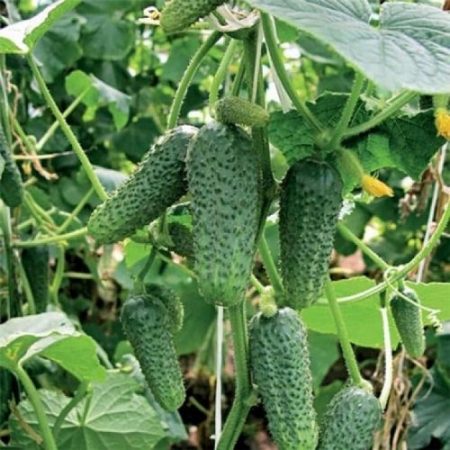 Early ripe, with compact size, shortened shoots. Female flowers prevail. Zelentsy during the fruiting period is harvested every day, otherwise they will outgrow. Fruits with a dense skin of 9-12 cm, tuberous, black-spiked.
Early ripe, with compact size, shortened shoots. Female flowers prevail. Zelentsy during the fruiting period is harvested every day, otherwise they will outgrow. Fruits with a dense skin of 9-12 cm, tuberous, black-spiked.
Kid
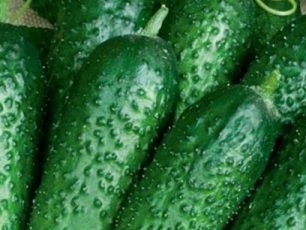 Small, 7-10 cm cucumbers ripen after 38-40 days. The pubescence is white; large spiky tubercles are located on a dark green skin. Up to 45-50 greens are removed from the bush. Valued for precocity, versatility, immunity to infections.
Small, 7-10 cm cucumbers ripen after 38-40 days. The pubescence is white; large spiky tubercles are located on a dark green skin. Up to 45-50 greens are removed from the bush. Valued for precocity, versatility, immunity to infections.
Zozulya
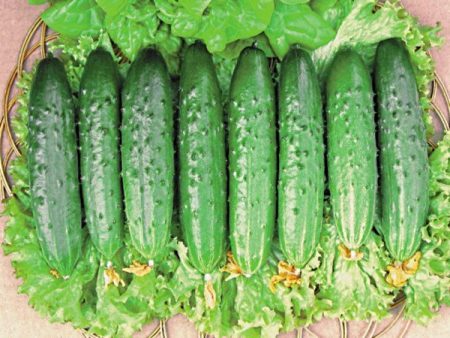 The variety is known for more than four decades. It grows in all regions, receiving positive feedback from summer residents. Gives Zelentsy up to 20-24 cm long. The pulp is dense, with a large number of small seeds. There is a pleasant aroma. Weaving is weak, in agricultural technology do without pinching and pinching. For preservation, the fruits are cut into slices.
The variety is known for more than four decades. It grows in all regions, receiving positive feedback from summer residents. Gives Zelentsy up to 20-24 cm long. The pulp is dense, with a large number of small seeds. There is a pleasant aroma. Weaving is weak, in agricultural technology do without pinching and pinching. For preservation, the fruits are cut into slices.
Tom Thumb
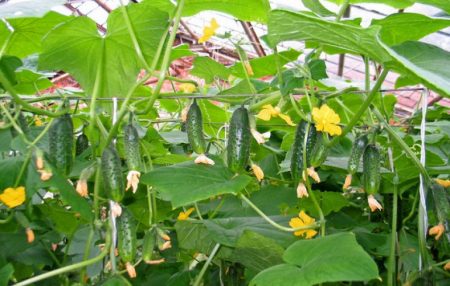 Forms cucumbers without pollination (partenocarpic), showed excellent results in greenhouses, on ridges. It gives 12-14 kg with 1 square. meters, bears fruit for a long time (up to 1.8-2 months). Gherkins 7-9 cm, with small whitish stripes on a dark green skin. Taste is rated excellent.
Forms cucumbers without pollination (partenocarpic), showed excellent results in greenhouses, on ridges. It gives 12-14 kg with 1 square. meters, bears fruit for a long time (up to 1.8-2 months). Gherkins 7-9 cm, with small whitish stripes on a dark green skin. Taste is rated excellent.
Masha F1
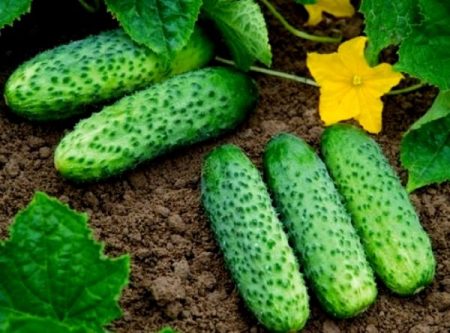 Gives a harvest in 38-40 days. The fruits are cylindrical, with a very dense skin. Length 7-9 cm, juicy pulp, with a crunch. There is no bitterness. From 1 square meter remove up to 11-12 kg.
Gives a harvest in 38-40 days. The fruits are cylindrical, with a very dense skin. Length 7-9 cm, juicy pulp, with a crunch. There is no bitterness. From 1 square meter remove up to 11-12 kg.
Competitor
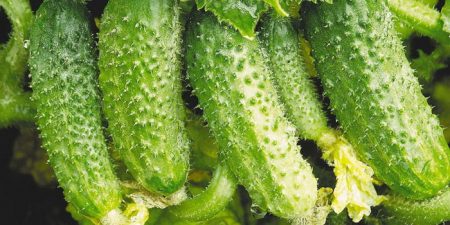 A powerful bee pollinated variety. Matures in 45 days. Zelentsy hilly, dark green, with small spines. They grow to 12-14 cm. Resistant to bacteriosis, powdery mildew.
A powerful bee pollinated variety. Matures in 45 days. Zelentsy hilly, dark green, with small spines. They grow to 12-14 cm. Resistant to bacteriosis, powdery mildew.
The rules for the collection of cucumbers for conservation
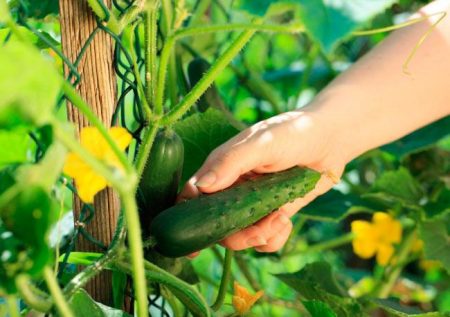 Correctly picking a vegetable for preservation is a whole art. Key recommendations:
Correctly picking a vegetable for preservation is a whole art. Key recommendations:
- It is desirable to collect Zelentsy in the morning, before bright sunshine.
- The day before, plants are watered with warm water.
- The fruits are removed carefully, without injuring the lashes, without turning them over.
- During the period of mass yield of the crop, Zelentsy is removed every day so that they do not outgrow. In a number of hybrids at the genetic level, there is a lack of bitterness and the impossibility of overgrowing. Old varieties turn yellow when untimely harvested, the peel of the fruits coarsens
- After harvesting, it is advisable to make preparations on the same day.
- It is recommended to grow cucumbers with different ripening dates. Early pickling will go to summer harvesting, later pickling and pickles for winter consumption.
With the right and careful choosing a variety of cucumbers, as well as the full care of plants, raw materials for pickles, pickles and preservation, the summer resident will be provided.

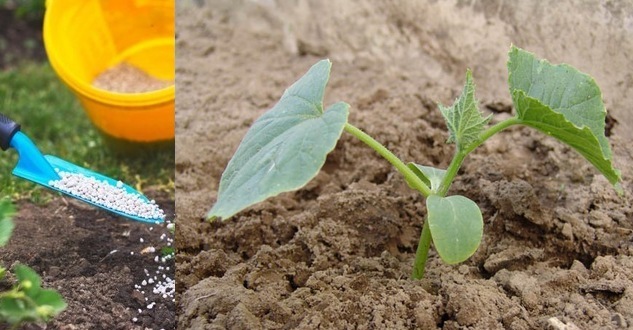
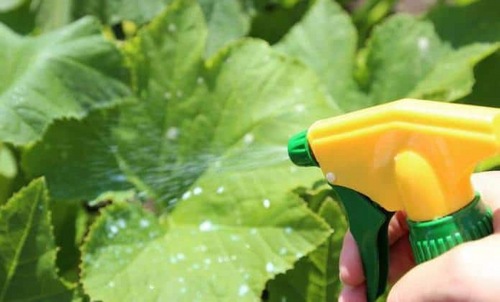
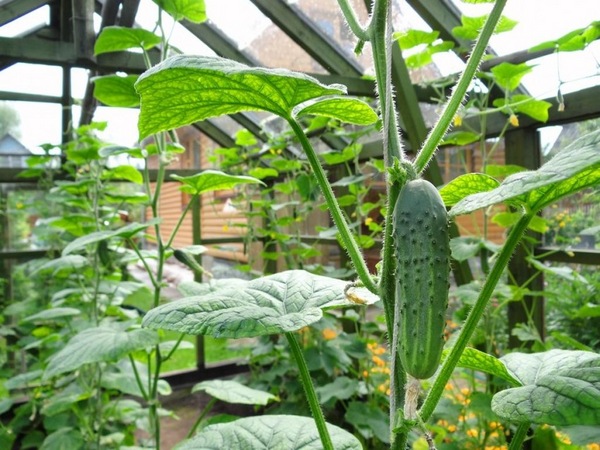
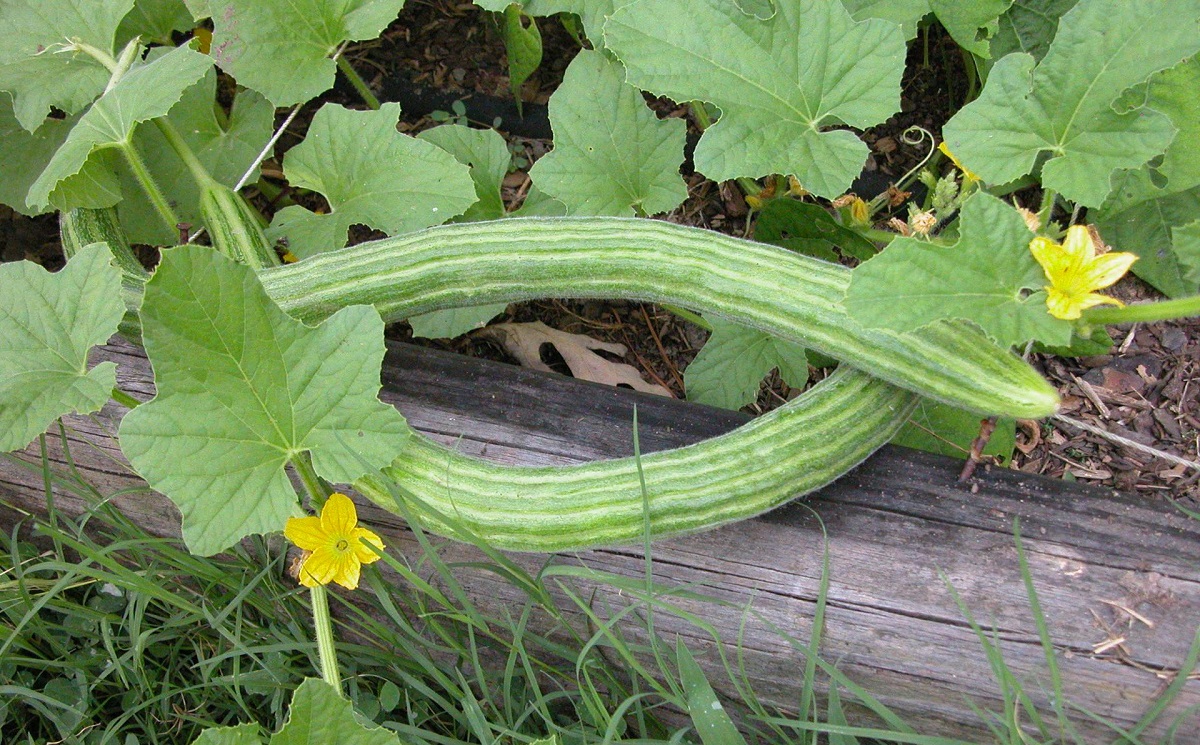 Armenian cucumber with melon flavor: description and characteristics, reviews
Armenian cucumber with melon flavor: description and characteristics, reviews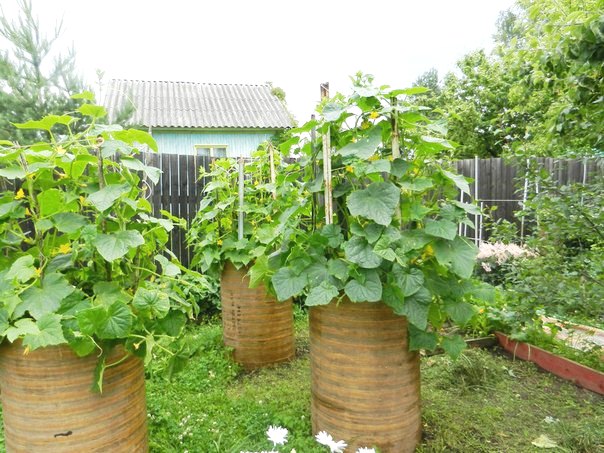 Do-it-yourself vertical beds for cucumbers: schemes, photos
Do-it-yourself vertical beds for cucumbers: schemes, photos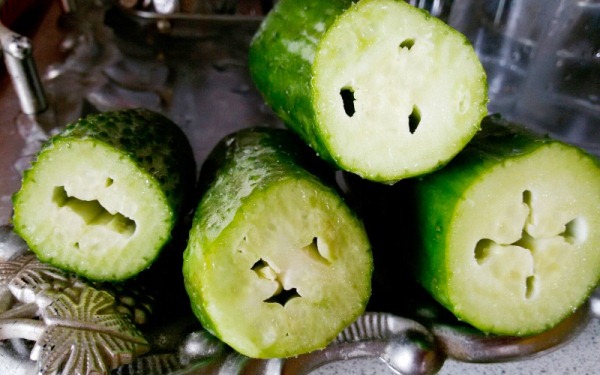 Hollow cucumbers: reasons for the appearance of hollow, what to do
Hollow cucumbers: reasons for the appearance of hollow, what to do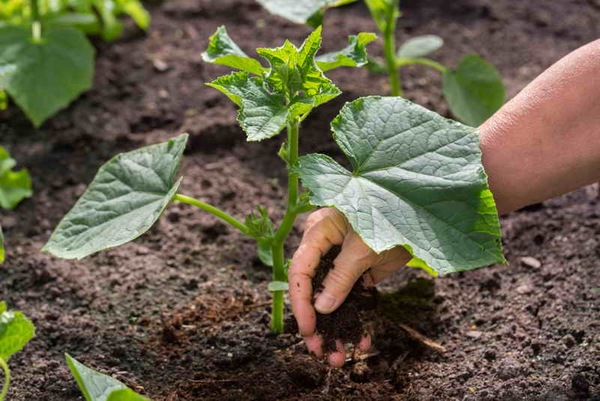 Which manure is best for cucumbers: application, how to breed
Which manure is best for cucumbers: application, how to breed
how do you imagine ....... You come to the market and start asking varieties !!!!!!!! sellers immediately "send" you !!!!!!!!!